CPR/AED/FIRST AID TRAININGS
Instructor-led, in-person AHA CPR/AED/1st Aid trainings have returned!
The next Heartsaver CPR AED course will be scheduled shortly. Contact Kim if you have a group of 3-6 people and would like to schedule a training.
Class size is limited and 48-hour advance registration is required.
Help save the life of a loved one, a friend, or even a complete stranger! The American Heart Association's 'watch-then-practice' format makes learning straight-forward and easy. Our trainings include the most up-to-date guidelines and protocols, and are open to Studio members as well as the general public. Scroll down to view the course descriptions to determine which one is right for you.
We understand you may be reluctant to attend a full in-person training. However, please do not let that deter you from becoming CPR/AED certified! You truly are, in many ways, the best chance a victim of cardiac arrest has for survival. Having said that, consider completing the on-line Cognitive portion of the American Heart Association course (see link, below, under ‘On-Line Courses’), print the Certificate of Completion and contact us to complete your hands-on skills evaluation. This last step is required to become fully certified and takes approximately 1-hour to complete. Register at least 24-hours prior to the date you would like to schedule your skills evaluation.
Are you apprehensive about taking your first CPR/AED/First Aid course?
No worries! - read below for a few comments from two of our recent participants:
“Thank-you! I was a little anxious signing up for this class, perhaps it seemed less legitimate set in an aerobics studio rather than the Red Cross or something? And I did need the ‘Real Thing’ for my OT program. But I really feel like I lucked out, finding this class online. Kim was prompt replying to my initial email, clear and informative answering my questions, and worked hard to accommodate my needs in terms of scheduling and learning style.
I was also anxious about taking the class, I found the last one I took rather stressful, hurried, and sometimes confusing. This session with Kim was a really great experience. I found her extremely knowledgeable and an excellent instructor. She made sure I understood each step of the way, was patient when I got confused, and like any good teacher - found various ways to explain any unclear points. I learned far more than I did in my previous CPR class and this time around I actually feel confident that I can use these skills if need be.”
“I just wanted to let you know that I have been receiving really great reviews about your training yesterday. People seem to be very happy and found it to be valuable. ”
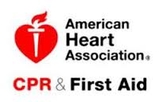
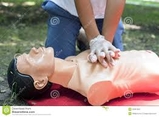
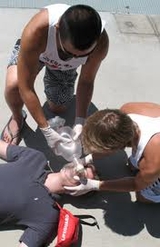
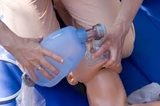
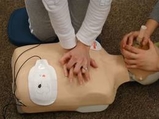
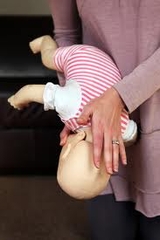
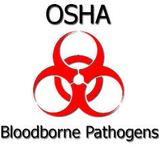
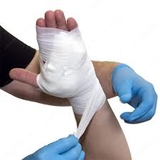
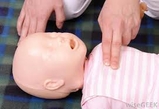
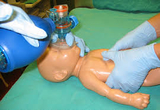
Online Courses
Are you having difficulty finding a “live” course that fits your busy schedule? Read on and follow these simple steps:
1) Visit http://www.onlineaha.org/ and click on the “Courses” tab to sign up for the online cognitive session, part one, of the Basic Life Support (BLS), Heartsaver CPR/AED and/or Heartsaver First Aid class of your choice.
2) Complete the cognitive portion of one of the above courses online and print the completion certificate.
3) Contact us for an appointment to have your skills evaluated, part two. The skills session fee is $45.00 and takes approximately 1 hour. Upon successful completion, you will receive your two year AHA certification e-card within two weeks.
Remember, you must bring the online course completion certificate with you to the skills evaluation session.
Basic Life Support (BLS)
Course Description: The American Heart Association Basic Life Support (BLS) Course is the foundation for saving lives after cardiac arrest. The course teaches both single-rescuer and team basic life support skills for application in both in-facility and pre-hospital settings. It includes the most recent guidelines and covers core material such as adult and pediatric CPR (including two-rescuer scenarios and use of the bag mask), foreign-body airway obstruction, and automated external defibrillation. Students must pass a skills test and written exam in order to qualify for a course completion card which is valid for 2 years.
Target Audience: This course is designed for healthcare professionals such as EMS personnel, physician assistants, doctors, dentists, nurses, and respiratory therapists who need to know how to perform CPR and other basic cardiovascular life support skills and need a credential (card) documenting successful completion of a CPR course.
Heartsaver CPR and AED
Course Description: The AHA Heartsaver AED Course teaches adult/child CPR, use of an Automated External Defibrillator (AED), relief of choking in adults and children, and infant CPR and relief of choking. The use of barrier devices for all ages will also be discussed. Students must pass a skills test in order to qualify for a course completion card. The card is valid for 2 years.
Target Audience: This course is intended for anyone with little or no medical training who have a duty to respond to a cardiac emergency because of job, regulatory (e.g. OSHA), or other requirements. This course may also be taken by anyone who wants to be prepared for an emergency in any setting. This is NOT the correct course for Healthcare Providers.
Heartsaver Pediatric First Aid, CPR, AED
Course Description: The Heartsaver CPR/AED and Pediatric First Aid course covers:
CPR/AED and Choking: CPR and AED use for Adults, Children and Infants; Adult*, Child and Infant choking
Pediatric First Aid Basics: medical emergencies, injury emergencies, and environmental emergencies.
Target Audience: Childcare providers, parents, grandparents, babysitters, camp counselors, coaches, teachers, and foster care workers. NOTE: This course is not designed for the Healthcare professional.
This American Heart Association certification is valid for 2 years and meets the regulatory and credentialed training requirements in all 50 states. Students must pass a skills test in order to qualify for a CPR/AED course completion card.
Heartsaver First Aid
This program is for employees at companies, corporations, or other business entities and/or designated personnel who have a duty to respond to a first aid emergency because of job responsibilities or regulatory requirements. You will learn:
First aid basics
Medical emergencies
Injury emergencies
Environmental emergencies
First Aid instruction includes bandaging, bleeding, wounds, choking, shock, seizure, fainting, broken bones, sprains, burns, bites, stings, poison, and temperature-related conditions, to name a few.
Heartsaver Bloodborne Pathogens
Course Description: The AHA Heartsaver Bloodborne Pathogens Course is designed to meet Occupational Safety and Health Administration (OSHA) requirements for bloodborne pathogens training. Learn what to do when there is danger of, or has been exposure to, bloodborne pathogens in the workplace. May be used as a stand-alone course or as an add-on to CPR/AED or First Aid training.
Target Audience: This course is for anyone with a reasonable chance for occupational exposure to blood or blood-containing materials. People may include workers in industry and manufacturing, occupational health, hospitality, health and fitness, child care, schools, maintenance, tattoo design, etc.
The American Heart Association strongly promotes knowledge and proficiency in BLS, ACLS and PALS and has developed instructional materials for this purpose. Use of these materials in an educational course does not represent course sponsorship by the American Heart Association. Any fees charged for such a course, a portion of fees for AHA course materials, do not represent income to the Association.